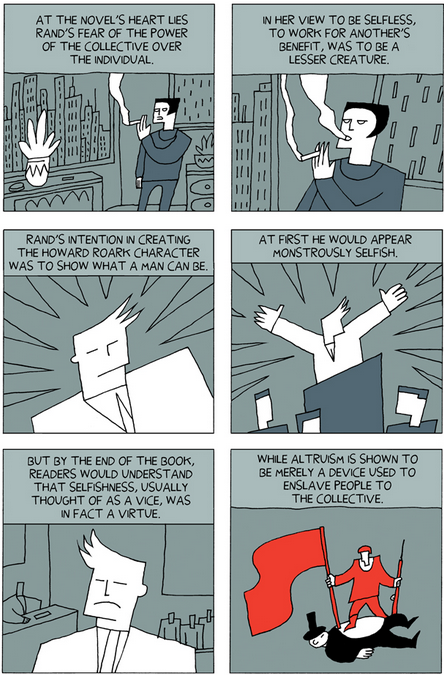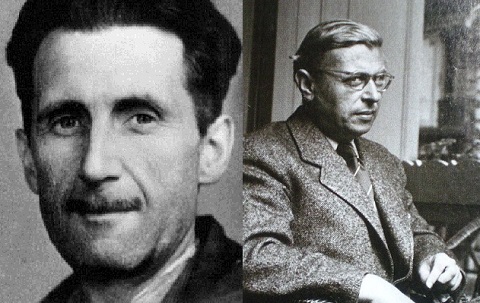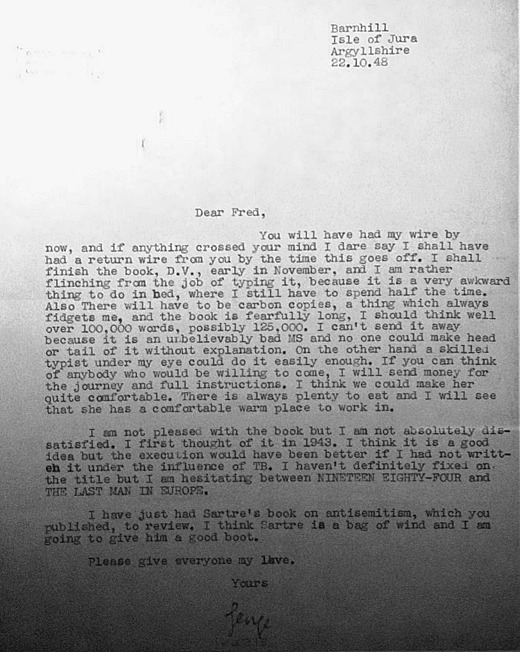
If you know about Open Culture, surely you know about Ubuweb. If you don’t, its slogan says almost everything you need to know about it: “All Avant-Garde. All the Time.” This vast online repository of cutting-edge cultural artifacts from a variety of eras also adheres steadfastly to the principle of keeping all of its material free: free in the sense of charging you nothing to read, hear or view it, and free in the sense that you can do whatever you want with it. Needless to say, the site, founded by poet Kenneth Goldsmith in 1996, has made many fans, and Ubuweb itself has tapped quite a few of the higher-profile ones to curate top ten lists. Assembled by people like New Yorker music critic Alex Ross, novelists Hari Kunzru and Rick Moody, alterna-pop star Nick “Momus” Currie, these help the potentially (and understandably) bewildered find their way through the trove of Ubuweb’s media, which is universally influential and vanishingly obscure, viscerally transgressive and vertiginously intellectual, eternally exciting and deliberately boring.
This month, Ubuweb called upon our fearless editor here at Open Culture for a top ten list. Most of the picks have been previously featured on OC. The list runs as follows:
1. Finnegans Wake (1939), Read by Patrick Healy
Open Culture: Hear All of Finnegans Wake Read Aloud: A 35 Hour Reading“The sheer pleasure one can derive — conventional expectations duly set aside — from the almost tactile quality of Joyce’s prose, its earthy, ancient, elven sounds, seems more to the point of appreciating this odd, frustrating work. Perhaps, like any well-written poem, one simply needs to hear it read aloud. Joyce himself said so, and so you can.”
2. The Craft of Verse: Jorge Luis Borges’ Norton Lectures, 1967–68
Open Culture: Jorge Luis Borges’ 1967–8 Norton Lectures On Poetry (And Everything Else Literary)“Nearing both 70 years of age and total blindness, Borges nonetheless gives a virtuosically wide-ranging series of talks, freely reaching across forms, countries, eras, and languages without the aid of notes. Entitled ‘This Craft of Verse,’ these lectures ostensibly deal with poetry. Alas, like many literary geeks, I know too little of poetry, but if Borges can’t motivate you to learn more, who can?”
3. Three Rare Films by Susan Sontag
Open Culture: The Filmmaking of Susan Sontag & Her 50 Favorite Films (1977)“Sontag, they say, ‘sought to liberate art from interpretation (which is a bit ironic, of course, for someone who was essentially an exalted critic). When it came to her own film, she made something that intended to deliberately confound the notion that there was any sort of underlying meaning beyond exactly what the audience was seeing on the screen directly in front of them.’ ”
4. M.A. Numminen Sings Wittgenstein (1983 / 1989)
Open Culture: Ludwig Wittgenstein’s Tractatus Gets Adapted Into an Avant-Garde Comic Opera“Given the Tractatus’s firebombing of an entire area of human endeavor, it’s no surprise it hasn’t fared well in many traditional departments, but that hasn’t stopped Wittgenstein’s work from finding purchase elsewhere, influencing modern artists like Jasper Johns, the Coen Brothers, and, not least surely, Finnish avant garde composer and musician M.A. Numminen. This odd character, who caused a stir in the 60s by setting sex guides to music, took it upon himself to do the same for many of the Tractatus’s propositions, and the results are, well…. Listen for yourself.”
5. Aldous Huxley’s Visionary Experience
Open Culture: Aldous Huxley, Psychedelics Enthusiast, Lectures About “the Visionary Experience” at MIT (1962)“Huxley had already gained worldwide fame for his views on better living, which was sometimes achieved, he believed, through psychedelic drugs. This might have already sounded like old hat in, say, the San Francisco of the late 1960s, let alone the 70s and onward, but in these recordings Huxley says his piece in — I still can’t quite believe it — the MIT of the early 1960s. But diagnosed a couple years before with the cancer that would claim his life the next, he had nothing to lose by spreading the word of his substance-induced discoveries.”
6. Jacques Derrida’s Interview with Ornette Coleman [PDF]
Open Culture: Philosopher Jacques Derrida Interviews Jazz Legend Ornette Coleman: Talk Improvisation, Language & Racism (1997)“Translating Coleman’s technique into ‘a domain that I know better, that of written language,’ Derrida ventures to compare improvisation to reading, since it ‘doesn’t exclude the pre-written framework that makes it possible.’ For him, the existence of a framework—a written composition—even if only loosely referenced in a jazz performance, ‘compromises or complicates the concept of improvisation.’ ”
7. Joey Ramone Sings a Piece by John Cage Adapted from James Joyce’s Finnegans Wake: “The Wonderful Widow of Eighteen Springs,”
Open Culture: Hear Joey Ramone Sing a Piece by John Cage Adapted from James Joyce’s Finnegans Wake“Ramone’s interpretation of the piece is enthralling simply as a piece of recorded music. But it’s also a fascinating piece of cultural history, representing a confluence of the foremost figures in early twentieth century modernist literature, mid-century avant-garde music, and late century punk rock.”
8. The Avant-Garde Project
Open Culture: The Avant-Garde Project: An Archive of Music by 200 Cutting-Edge Composers, Including Stravinsky, Schoenberg, Cage & More“Every sphere of recorded music has its crate-diggers, those happy to flip through hundreds — nay, hundreds of thousands — of obscure, forgotten vinyl albums in search of their subgenre’s even obscurer, more forgotten gems. This holds especially true, if not in number than in avidity, for enthusiasts of the 20th-century classical-experimental-electroacoustic tradition that The Avant-Garde Project takes as its preservation mandate.”
9. Alice Toklas Reads Her Hashish Fudge Recipe
Open Culture: Alice B. Toklas Reads Her Famous Recipe for Hashish Fudge (1963)“In this 1963 recording from Pacifica Radio, Toklas reads her notorious recipe. The snack ‘might provide an entertaining refreshment for a Ladies’ Bridge Club or a chapter meeting of the DAR,’ Toklas notes in her reedy, dignified voice.”
10. Jean Baudrillard Sings!
Open Culture: Jean Baudrillard Reads His Poetry, Backed By All-Star Arts Band (1996)“Known to hip academic types and avant-garde-ists, Baudrillard’s maybe the kind of thinker who gets name-dropped more than read (and he’s no easy read). But in the audio clip above, he reads to us, from his poetry no less, while backed by the swirling abstract sounds of The Chance Band. It’s an odd, one-time, assemblage of artists and thinkers Ubuweb describes as ‘unbelievable but true!’ ”
If you’ve already seen everything on it, congratulations: you can consider yourself a true, shall we say, OC OG.
Related Content:
Avant-Garde Media: The UbuWeb Collection
Extensive Archive of Avant-Garde & Modernist Magazines (1890–1939) Now Available Online
Take a Virtual Tour of the 1913 Exhibition That Introduced Avant-Garde Art to America
Colin Marshall hosts and produces Notebook on Cities and Culture and writes essays on cities, language, Asia, and men’s style. He’s at work on a book about Los Angeles, A Los Angeles Primer. Follow him on Twitter at @colinmarshall or on Facebook.






